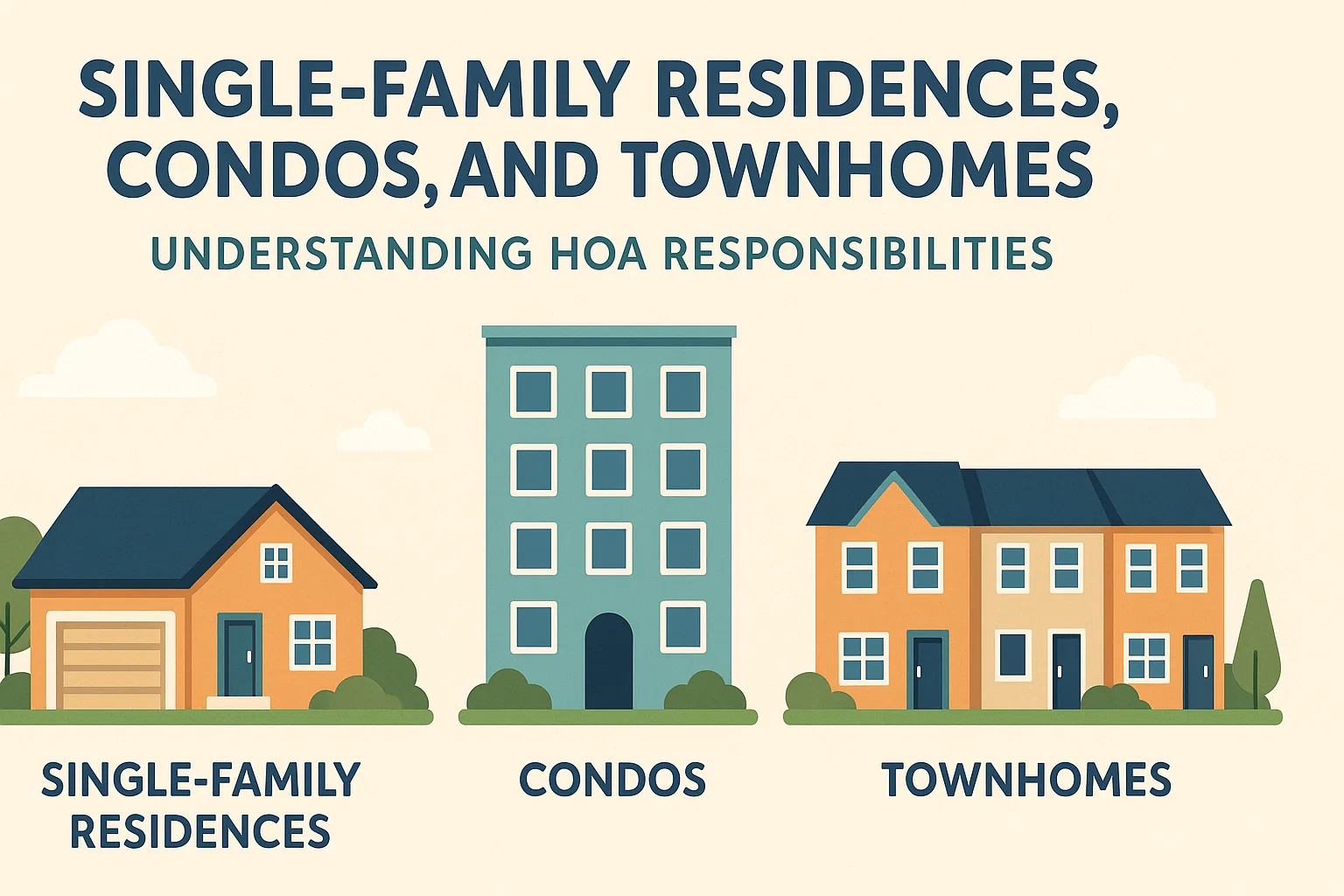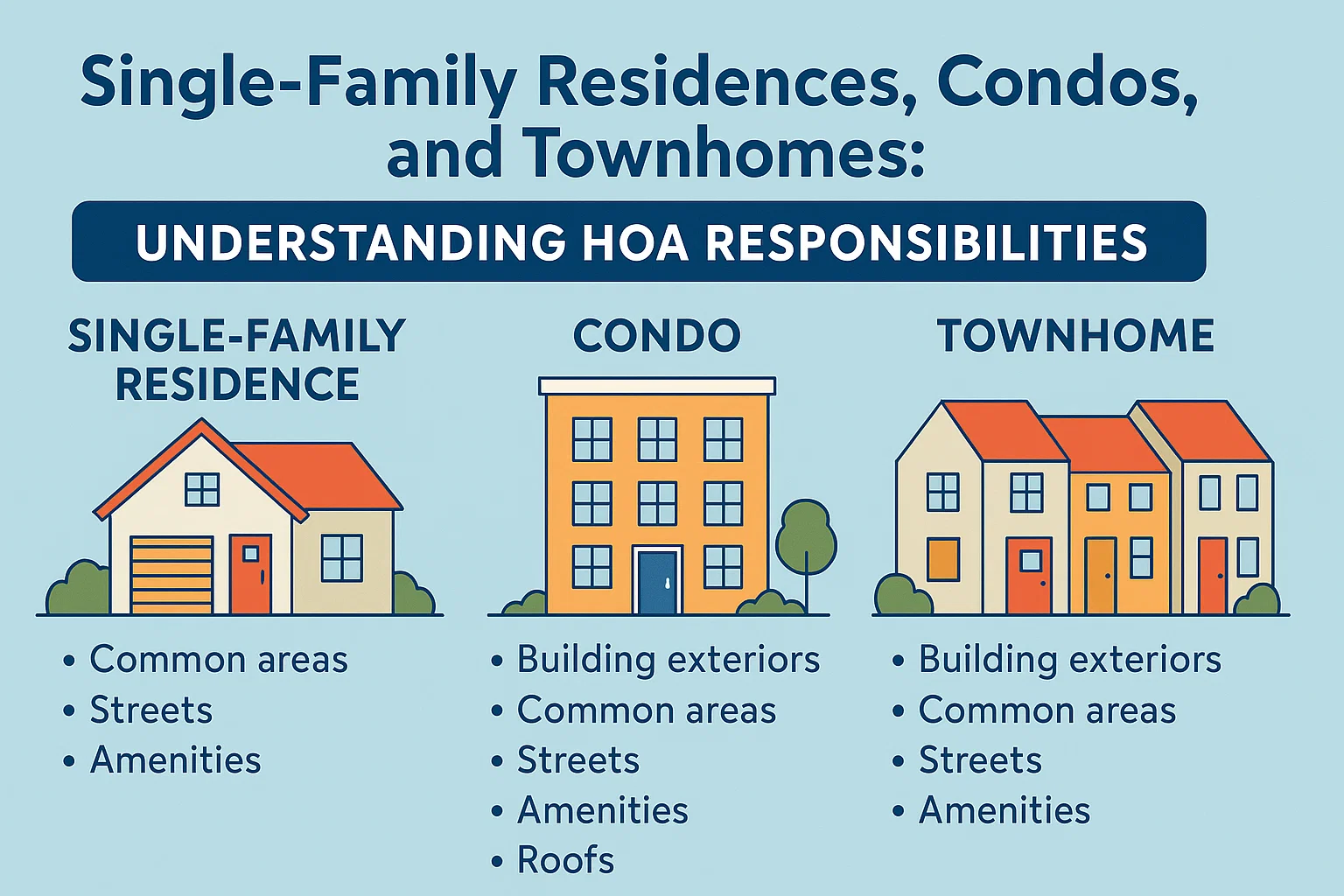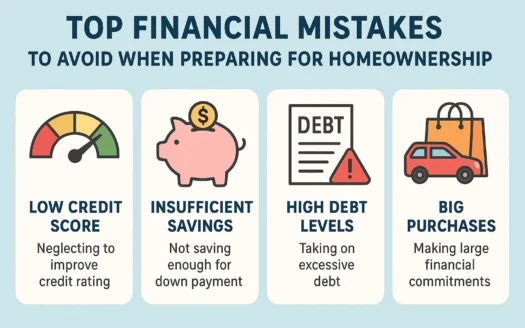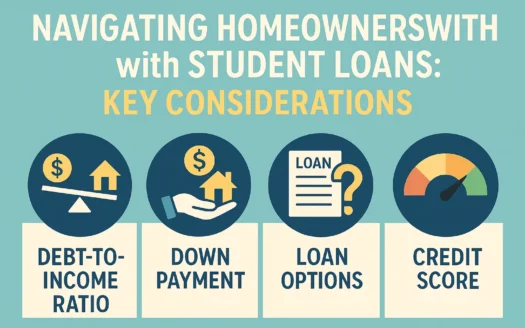Single-Family Residences, Condos, and Townhomes: Understanding HOA Responsibilities

Single-Family Residences, Condos, and Townhomes: Understanding HOA Responsibilities
Single-family residences, condos, and townhomes are all great home options, but they’re unique in their own ways. When considering which home is the right fit for you, it’s important to understand how these homes differ, particularly regarding homeowner associations (HOAs).
Key Similarities Between HOA Types
HOAs for all home types share the same core goal: to safeguard homeowners’ assets. They help maintain neighborhoods, enforce community guidelines, and protect property values. For instance, HOA boards often standardize materials and colors for repairs or exterior updates to ensure a cohesive community aesthetic, whether for single-family homes or attached residences.
“The rules and guidelines maintaining your property are likely to increase the appreciation of your home’s value versus a neighborhood with no strict rules,” explains a licensed real estate salesperson with Keller Williams Realty. Additionally, fees vary widely depending on amenities and services covered—there’s no one-size-fits-all model.
Key Differences in Maintenance Responsibilities
Single-Family Residences
Single-family HOAs typically manage common areas like parks, sidewalks, and pools. Homeowners are responsible for their own home maintenance, including roofs, siding, and yardwork. Some neighborhoods may have minimal HOA involvement, leaving upkeep largely to residents.
Condos and Townhomes
In attached-home communities, HOAs handle building exteriors, shared structures, and landscaping. For example, condo associations cover roof repairs, siding, and insurance for the entire building. Owners are responsible only for their unit’s interior. “A condo or townhome building without an HOA is a disaster waiting to happen,” warns a co-principal at Lexington Homes. “Someone must oversee maintenance to ensure fairness among owners.”
Financial Considerations and HOA Fees
Condo and townhome HOA fees are often higher due to the broader scope of covered services, including building insurance and structural upkeep. Single-family residence fees may be lower but vary based on amenities like pools or landscaping. Monthly assessments reflect what the HOA manages—attached communities分摊 costs for shared repairs, while single-family owners bear full responsibility for their property.
Choosing the Right Home for Your Lifestyle
Your preference for maintenance involvement is key. Condos and townhomes suit those seeking a “leave-and-lock” lifestyle, ideal for frequent travelers or busy professionals. Single-family homes appeal to owners who want control over their property’s upkeep. Always review HOA governing documents before purchasing to clarify responsibilities, fees, and rules.




